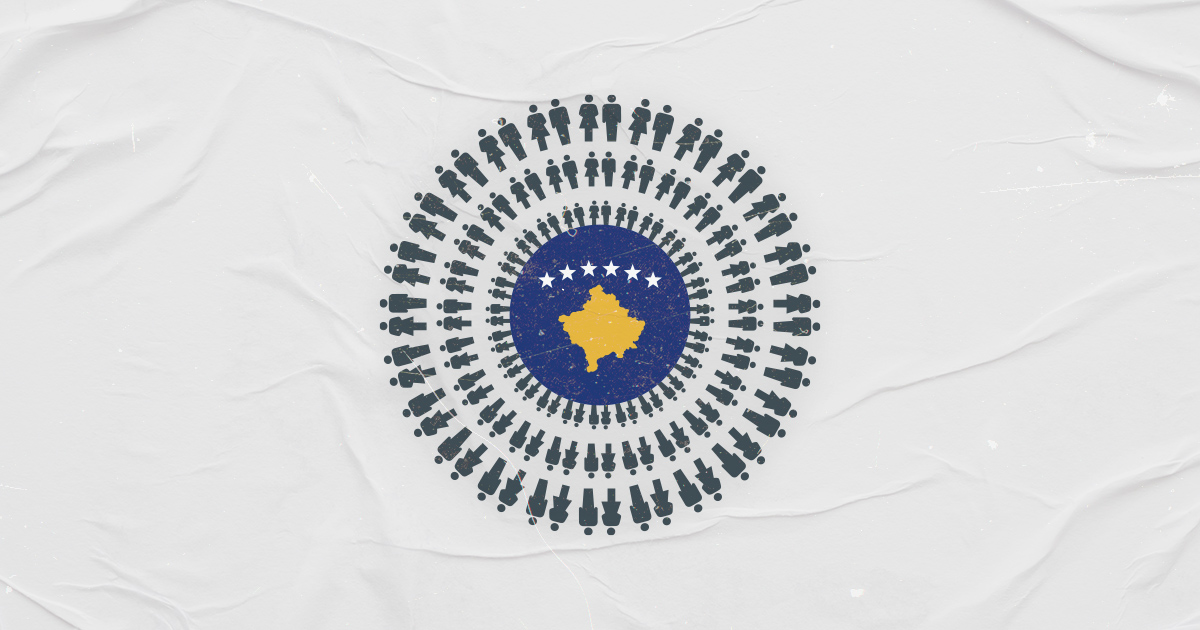

Kosovo Agency of Statistics final data on census report found that Kosovo's resident population has decreased to 1.6 million, down from 1.7 million in 2011, which is accompanied by a rise in urban living and an aging demographic.
The Kosovo Agency of Statistics, KAS, on Thursday published the final results of the 2024 Population Census on Thursday, revealing that Kosovo’s resident population stands at 1,602,515 in comparison to 1,739,825 in the 2011 census, with the average age of the population rising from 29.97 years in 2011 to 34.84 years in 2024.
This census, conducted between April 5 – May 24, 2024, shows demographic and social shifts, including changes in urbanisation and population age structure, as well as including diaspora data and assessments of war damages for the first time.
According to final data of the KAS, the ethnic structure of Kosovo remains largely unchanged, with 91.76% of the population identifying as Albanian, followed by 2.31% Serbs, 1.69% Bosniaks, 1.22% Turks, 0.55% Roma, 1.02% Ashkali, 0.67% Egyptians, 0.58% Gorani, and 0.06% classified as ‘other’ or unspecified.
Similarly to the 2011 census, a significant portion of the Serbian community boycotted the census, especially in the four northern municipalities.
KAS in its report emphasised that it conducted a Population Estimate for four predominantly Serbian municipalities: Leposavic, Zvecan, Zubin Potok, and North Mitrovica. This estimate was carried out in close collaboration with international experts.
Meanwhile, there was no such boycott in other 6 municipalities with a Serbian majority in other parts of Kosovo.
The 2024 census reveals a shift toward urban living, with 50.18% of residents now residing in urban areas compared to 38% in 2011.
There has been a decrease in the average number of residents per housing unit.
According to the Kosovo Agency of Statistics, the 2024 census reports an average size of family unit down from 5.9 in 2011 to 4.3 this year.
While most Kosovars identify as Muslim, the proportion has decreased from 95.6% in 2011 to 93.49% in 2024. Meanwhile, the percentage of Orthodox Christians increased from 1.48% to 2.31%. There are 1.75% Catholics and the category for those without religion grew from 0.07% to 0.5% while 1.5% preferred to not declare.

The population under 14 years old has declined from 17.14% in 2011 to 13.53% in 2024. Conversely, the proportion of those aged 65 and older increased from 6.70% to 10.97%, reflecting an aging population.
Despite the population decrease, the number of housing units has risen significantly, from 412,000 in 2011 to 583,000 in 2024.
In 2024, there are 182,849 vacant housing units, compared to 99,808 recorded in 2011.
For the first time, the census included an evaluation of the damages caused by the 1998-1999 war.
Families reported financial damages ranging from 20,000 to 40,000 Euros with a total estimated war damages reaching 5 billion euros.
Additionally, the census documented 11,417 deaths, 1,047 missing persons, 6,682 injuries, and 3,312 imprisonments related to the war, as well as 193,765 instances of psychological trauma and torture.
Avni Kastrati, acting director at KAS, noted that these figures “might be underreported as many people were not in Kosovo during the registration process.”
The 2024 census also included Kosovars living abroad. According to KAS, approximately 550,000 Kosovars reside in the diaspora. This registration process for diaspora will remain open until the end of December 2024.
The census was conducted through face-to-face interviews, with residency defined as living in Kosovo for over 12 months. The project cost approximately 10.7 million euros and included questions on family structure, housing conditions, migration, socioeconomic status, and war-related damages.
KAS also conducted a Post-Census Survey to assess coverage and content errors in the Population, Household, and Housing Census of 2024.
Kosovo Prime Minister Albin Kurti emphasised the importance of the data for policy making.
“These statistics are essential for all aspects of national planning and development. They help us understand demographic dynamics, socio-economic conditions, and challenges, enabling us to devise sustainable strategies for economic and social growth.”
20 December 2024 - 15:52

In Kosovo’s public discourse, early pregnancies are frequently portr...

A significant portion of the information consumed by the citizens of K...

Former intelligence agency chief Driton Gashi was sentenced to four ye...

Kosovo has emerged as a critical transit point along the Balkan route,...